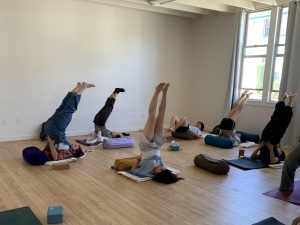What is Contemplative Philosophy?
Cultivate a deeper understanding of yourself
Contemplative philosophy is a multifaceted approach to understanding reality, the self, and the pursuit of wisdom. Drawing from both Western and Eastern philosophical traditions, it offers profound insights into the human condition and provides practical tools for self-reflection, personal growth, and inner transformation. We believe that the purpose of ideas is to feed back into how we act, speak, and move through the world. Therefore, we strive to consider and integrate the best of what we read into our own lives.

In that spirit, the summer program contains four major components. First is the Seminar which focuses on the reading and discussion of philosophical texts. Second and third are the Contemplative Exercise and Arts Workshop, which give you opportunities to engage philosophical ideas and questions through other lenses. Fourth is living together in a community grounded by the spirit of service and collaboration.
An Overview of Contemplative Philosophy
In Western classical philosophy, contemplation was highly regarded as a means to engage with fundamental questions about existence, ethics, and the nature of knowledge. Plato, for instance, emphasized the importance of contemplation as a way to access the realm of Forms or Ideas, which he believed to be the ultimate reality behind the physical world. According to Plato, contemplation leads to self-discovery and the recognition of universal truths.
Eastern philosophies, such as Buddhism, Taiji, and Yoga, also place great emphasis on contemplation as a means to attain insight and liberation from suffering. Buddhism, for instance, encourages contemplative practices such as mindfulness and meditation in order to develop a deeper understanding of the self and the impermanent nature of reality. By observing the mind and its attachments, practitioners can cultivate wisdom and compassion.
Contemplative philosophy, regardless of its Western or Eastern roots, invites you to embark on a journey of self-discovery and personal transformation. It encourages critical reflection, introspection, and the exploration of your thoughts, emotions, and perceptions. By engaging in contemplative practices, you will develop a deeper understanding of yourself and your place in the world.
Moreover, contemplative philosophy offers a holistic approach to life, emphasizing the integration of mind, body, and spirit. It provides practical tools for managing stress, cultivating emotional well-being, and developing resilience in the face of challenges. Through contemplation, individuals can tap into their innate wisdom and inner resources, leading to a more fulfilling and meaningful life.







